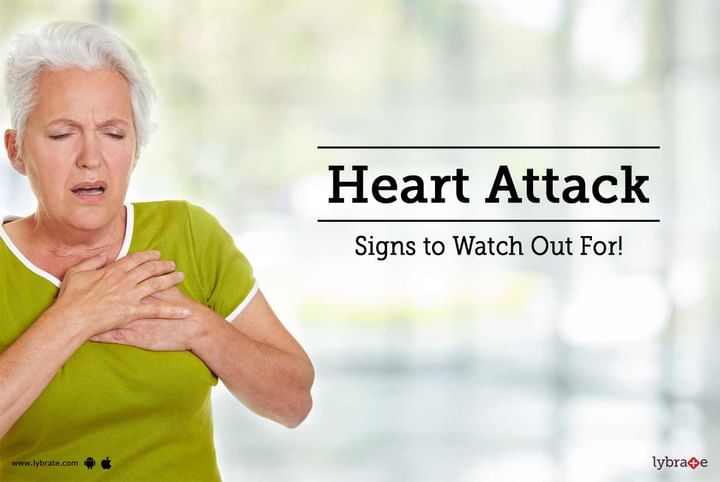Heart Attack - Signs to Watch Out For!
A heart attack is caused if the blood flow to the heart is somehow obstructed by fat deposits, cholesterol or other substances, thereby, forming a plaque in the arteries. The disruption in this flow of blood destroys a part of the heart muscle and may prove to be fatal if not treated right on time.
Not every heart attack starts with a sudden crushing pain in the chest. In fact, about 30 per cent of the cases haven’t yielded any such symptom. However, the signs may vary from one person to another:
- Heart attack might start slowly causing only mild discomfort or pain initially. The symptoms happen to be sudden and intense, persisting for several hours.
- Mostly heart attack induces pain on the left side or the center of the chest. The discomfort generally persists for a few minutes. It can even result in a feeling of indigestion or heart burn, fullness, squeezing and pressure which can turn from mild to severe.
- One might also experience an aching sensation in the upper stomach, jaw, neck, shoulders, back or both of the arms.
- Shortness of breath is one of those very common symptoms.
- Other common symptoms include excessive sweating, exhaustion, vomiting, nausea, sudden dizziness or light-heartedness.
How can you tell a heart attack from a mere panic attack?
Panic attack occurs even more suddenly and induces intense fear, extracting extreme reactions for something relatively harmless. Once the attack subsides, one usually feels week on the knees and tender near the gut. Some of the symptoms exclusive to a panic attack include a feeling of detachment, numbness, hot flashes, chills and tightness experienced in and around the throat, tremors (primarily of the hands) and a constant fear of losing control or of an impending danger.
Although many indications of a heart attack might happen to overlap with those of a panic attack, there are still a few noteworthy differences between the two. Watch out for those signs and get yourself diagnosed properly. If you wish to discuss about any specific problem, you can consult a cardiologist and ask a free question.



+1.svg)
